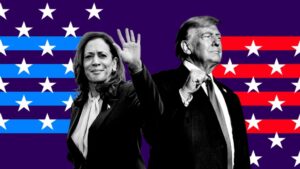For the past few years, concerns about the leadership of President Joe Biden have swirled. These concerns were initially dismissed as partisan attacks, but recent events have given even staunch supporters reason to wonder: Who is actually running the country? The latest revelation, that First Lady Jill Biden reportedly led a Cabinet meeting while her husband was elsewhere, raises serious questions about whether President Biden is still capable of performing his duties. This situation has compounded speculation that others—notably senior advisors, bureaucrats, and unelected officials—may be the ones wielding real power in Washington.
In light of these concerns, it’s time to ask whether Vice President Kamala Harris should step in as president now, rather than waiting until January 2025. Doing so would not only address the immediate issue of leadership but also prove, once and for all, whether Harris is truly capable of running the country.
Biden’s Fitness to Lead: The Growing Concerns
Joe Biden was elected on a promise to restore normalcy to the White House after the turbulent Trump years. Yet, over the past two years, there have been increasing signs that President Biden is struggling to fulfill the basic requirements of his office. His public appearances are limited, his speeches are riddled with errors, and his interactions with the media are tightly controlled. These issues have gone beyond mere gaffes; they suggest a president who may not be mentally or physically up to the demands of his role.
The claim that Jill Biden led a Cabinet meeting is particularly troubling. The First Lady is not an elected official and has no constitutional authority to govern. Her involvement in such a crucial function raises red flags. If the president’s spouse is stepping in to fill gaps in leadership, it’s a clear indication that something is deeply wrong.
For over a year, there have been rumors that key decisions are being made by senior advisors or unelected officials rather than the president himself. Whether it’s Ron Klain, President Biden’s Chief of Staff, or other high-level officials, there is a growing sense that the person sitting in the Oval Office is no longer the one making critical choices. And now, with reports of the First Lady’s involvement, these rumors are no longer the stuff of conspiracy theory—they are rapidly becoming mainstream concerns.
More troubling is the administration’s continued assurances that President Biden is fully capable of performing his duties. If that were the case, why would Jill Biden be stepping into roles that are clearly meant for the president? Why does the administration continue to limit Biden’s public appearances and shield him from unscripted press interactions? The American people deserve answers. More importantly, they deserve leadership.
Harris: The 25th Amendment and Her Role
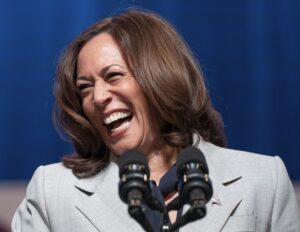
Nathan Howard/AP Photo
The U.S. Constitution provides a mechanism for situations just like this one. The 25th Amendment allows for the transfer of power to the vice president when a president is unable to perform his duties. While it has been invoked in temporary situations, such as when a president undergoes surgery, it has never been used to permanently remove a sitting president. However, the current situation may demand that it be seriously considered.
Under Section 4 of the 25th Amendment, the vice president and a majority of the Cabinet can declare that the president is unable to discharge the powers and duties of his office. If such a declaration were made, Kamala Harris would assume the role of acting president. This would not be a hostile takeover but rather a constitutional safeguard designed to ensure that the country has a leader who is fully capable of carrying out the duties of the presidency.
Many conservatives may bristle at the idea of Kamala Harris stepping into the presidency. Harris has been a divisive figure, both within her party and across the nation. Her performance as vice president has been lackluster at best. She has been criticized for mishandling key assignments, such as addressing the border crisis, and for her poor communication skills during interviews and speeches. In many ways, Harris has struggled to prove that she is ready to lead.
But the country cannot afford a president in name only, especially in these perilous times. From rising inflation to growing global tensions with China and Russia, the United States is facing real challenges that demand strong, decisive leadership. Allowing Harris to step in now, rather than waiting until January 2025, would at least resolve the question of whether she is truly capable of leading the nation. If she proves competent, the country can move forward with a clear understanding of her abilities. If she fails, it would become abundantly clear that the 2024 election will require a fresh face on the Democratic ticket—and possibly a more robust conservative candidate.
The Conservative Case for Early Action
Many on the right might be tempted to let Biden ride out the remainder of his term, hoping that his continued failures will make it easier to defeat him—or his eventual successor—in 2024. While that may seem like sound political strategy, it is not in the best interest of the country. The United States cannot afford to coast through the next two years with ineffective leadership. The stakes are too high. In fact, pushing for Harris to step in sooner rather than later could serve conservative interests in several key ways.
- Holding the Biden Administration Accountable: If President Biden is no longer fit to serve, the American people deserve to know it. Continuing to allow unelected figures to steer the country in his stead undermines the very foundations of representative democracy. Conservatives should demand transparency and accountability—two things that have been sorely lacking from the Biden administration.
- Forcing Harris to Prove Herself: Harris has largely been kept on the sidelines during Biden’s presidency, leading to speculation that even her own party does not have faith in her ability to lead. Allowing her to step in as president now would give her the opportunity to either prove herself or fail spectacularly. If Harris flounders under the weight of the presidency, it would provide conservatives with concrete evidence that the Democratic Party is in disarray and unfit to lead.
- Refocusing the Political Landscape: By invoking the 25th Amendment now, conservatives can refocus the national conversation on leadership and competence. While Harris is an unpopular figure, she is at least a known quantity. Conservatives could use this opportunity to emphasize the importance of strong leadership, drawing a sharp contrast between Harris and potential Republican candidates for 2024, such as Ron DeSantis or Donald Trump.
- Avoiding a Power Vacuum: The current situation, where unelected officials or even the First Lady are allegedly making key decisions, creates a dangerous power vacuum. This lack of leadership can have real consequences on both the national and global stage. Instability in the executive branch emboldens America’s adversaries, weakens its alliances, and sows uncertainty in the economy. A clear transfer of power to Harris, while not ideal from a conservative perspective, would at least restore some semblance of order and accountability to the White House.
A Moment of Clarity
Ultimately, the question of who is running the country is one that must be answered for the sake of the American people. If President Biden is no longer capable of performing his duties, the 25th Amendment provides a clear, constitutionally sound path forward. While Kamala Harris may not be the president conservatives want, allowing her to step into the role now would force the issue into the open. It would either confirm that Harris is a capable leader or expose the administration’s failures even further. Either way, the country would benefit from greater transparency and accountability at the highest levels of government.
The conservative case for early action is simple: America cannot afford another two years of uncertainty and weak leadership. Whether it is addressing the border crisis, responding to inflation, or dealing with growing threats from China and Russia, the challenges facing the nation require a president who is fully in charge. If President Biden cannot fulfill that role, then Kamala Harris must be given the chance to prove whether she can. And if she cannot, it will only strengthen the conservative argument for real change in 2024.
It’s time to put the rumors to rest. Let Harris take the reins now and prove, one way or another, whether she is truly capable of running the country.




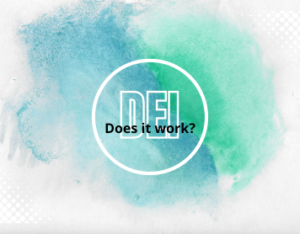
 The debate around taxation has heated up once again, with proposals on the table that would impose new taxes on businesses, the wealthy, and even on unrealized capital gains—essentially taxing wealth before it is actually earned or sold. While the rhetoric behind these policies is framed around fairness and economic equality, a deeper dive into the economics suggests that these taxes will do far more harm than good.
The debate around taxation has heated up once again, with proposals on the table that would impose new taxes on businesses, the wealthy, and even on unrealized capital gains—essentially taxing wealth before it is actually earned or sold. While the rhetoric behind these policies is framed around fairness and economic equality, a deeper dive into the economics suggests that these taxes will do far more harm than good.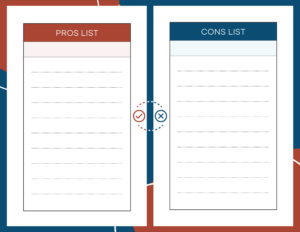 As the 2024 U.S. Presidential election looms, two prominent figures emerge with significantly different visions for the country: Vice President Kamala Harris and former President Donald Trump. Both have outlined their plans in speeches, public statements, and policy documents. Below, I’ll compare the top six policy areas where their platforms diverge and explore how they plan to achieve their objectives. These are based on their publicly stated goals and policy outlines.
As the 2024 U.S. Presidential election looms, two prominent figures emerge with significantly different visions for the country: Vice President Kamala Harris and former President Donald Trump. Both have outlined their plans in speeches, public statements, and policy documents. Below, I’ll compare the top six policy areas where their platforms diverge and explore how they plan to achieve their objectives. These are based on their publicly stated goals and policy outlines.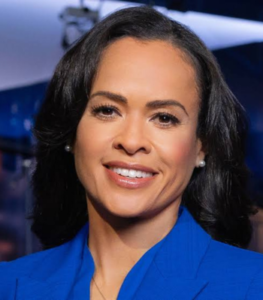 This concern apparently drove Davis and Muir to take a different approach when moderating the Trump-Harris debate. Instead of holding both candidates to an even standard, the moderators seemed determined to avoid a repeat of Biden’s disastrous performance by taking special aim at Trump. Davis admitted to the Los Angeles Times that they fact-checked Trump because of the “concerns” raised during the Biden debate, but her reasoning is troubling. Instead of creating a fair forum for all candidates, the moderators preemptively decided to stack the deck against one.
This concern apparently drove Davis and Muir to take a different approach when moderating the Trump-Harris debate. Instead of holding both candidates to an even standard, the moderators seemed determined to avoid a repeat of Biden’s disastrous performance by taking special aim at Trump. Davis admitted to the Los Angeles Times that they fact-checked Trump because of the “concerns” raised during the Biden debate, but her reasoning is troubling. Instead of creating a fair forum for all candidates, the moderators preemptively decided to stack the deck against one.